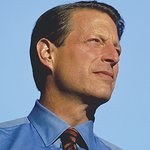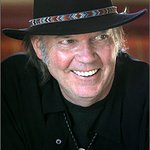Al Gore and Richard Branson are currently en route to Antarctica to witness first-hand the effects of climate change.
The trip – organized by Gore’s Climate Reality Project – sees the former Vice President return to the continent for the first time in 22 years.
“The Antarctic Peninsula, which juts northward toward South America, is lined with ice-covered mountains and surrounded by abundant wildlife in the sea,” he blogged. "But even on this continent that looks and feels pristine, a troubling process is underway because of global warming.
“The ice on land is melting at a faster rate and large ice sheets are moving toward the ocean more rapidly. As a result, sea levels are rising worldwide. Most of the world’s ice is contained in Antarctica – more than 90 percent. The West Antarctic Ice Sheet, which lies south of the Peninsula, contains enough water to raise sea levels worldwide by more than 20 feet. Part of the ice sheet, the Pine Island Glacier ice shelf, is among the many in Antarctica that are shrinking at an accelerating rate. This has direct consequences for low-lying coastal and island communities all over the world – and for their inland neighbors.”
Branson is also blogging about the trip: "A beautiful pod of eight minke whales playing alongside the boat for half an hour with a solitary fin whale taking the lead. An unusual sighting since they’re still fearful of boats from the days of whale hunting in this region. Delightfully their numbers are returning. As they leave the water they expose their beautiful pink underbellies coated with algae. One wondering albatross swooping above them.
“The whales biggest threat today is from the vast fishing fleet that lands thousands of tons of krill to be used as fertiliser. The whales live off krill and most other species in the Arctic do too. Without it most will be in peril.
“So at our next OceanElders meeting we will debate how the climate can be policed better and how krill can be protected.”
Branson’s OceanElders was established last year to bring together global leaders to use their wide range of experience and influence, supported by science and data, to pursue the protection of the ocean’s habitat and wildlife.
Founding members of the group include Ted Turner, Dr Sylvia Earle, Jackson Browne, Dr. Rita Colwell, Jean-Michel Cousteau, Graeme Kelleher, Sven Linblad, Captain Don Walsh and Neil Young.
“I have a great love for the oceans and I believe that we need a plan to save them,” said Mr. Turner. “I’m honored to work together with global leaders in order to advance critical ocean issues and help protect these ecosystems.”
Sir Richard Branson is Founder and Chairman of the Virgin Group. Virgin is one of the world’s most recognized and respected brands and has expanded into many diverse sectors from air and ground travel to telecommunications, health, space travel, and renewable energy through more than 200 companies worldwide. Sir Richard was instrumental in founding The Elders, an organization focused on human rights.
“We are all concerned about the ocean and its declining health. As the ocean goes, so shall we,” said Sir Richard. “OceanElders was created to give the ocean a loud and focused voice. It will act as a centerpoint in this field of ocean conservation. By collaborating with other organizations, OceanElders can provide advice, guidance, and potentially, the tipping point needed to gain media attention and wide scale awareness.”
In addition to working at the global policy level, OceanElders will develop a web-based network of regional Ocean Elders focused on garnering support for ocean-related issues in their local communities. The overarching goal is to make the oceans top-of-mind in people’s thoughts and conversations, bringing the issue to the forefront of the global agenda for the first time in history.
The idea for OceanElders was born on the Mission Blue Voyage to the Galapagos Islands in April 2010, where more than 100 scientists, business leaders, philanthropists and celebrities came together to help Dr. Sylvia Earle, 2009 TED Prize Winner. Given “one wish to change the world” by TED, Earle asked for help in catalyzing public support for the urgent need for ocean conservation by advocating for the establishment of a global network of marine protected areas − “hope spots” in Earle’s words − big enough to save and restore the ocean.
A Mission Blue Voyage participant and philanthropist, Gigi Brisson returned home inspired to sustain the momentum sparked in the Galapagos. Aware of the mission and positive impact of The Elders in addressing human rights, Brisson believed that a similar structure could be applied to benefit the ocean. Following its model, Brisson created and funded OceanElders, and targeted global leaders who had a personal passion for the ocean and all marine life.
To find out more about Al Gore and Richard Branson in Antarctica, click here.






